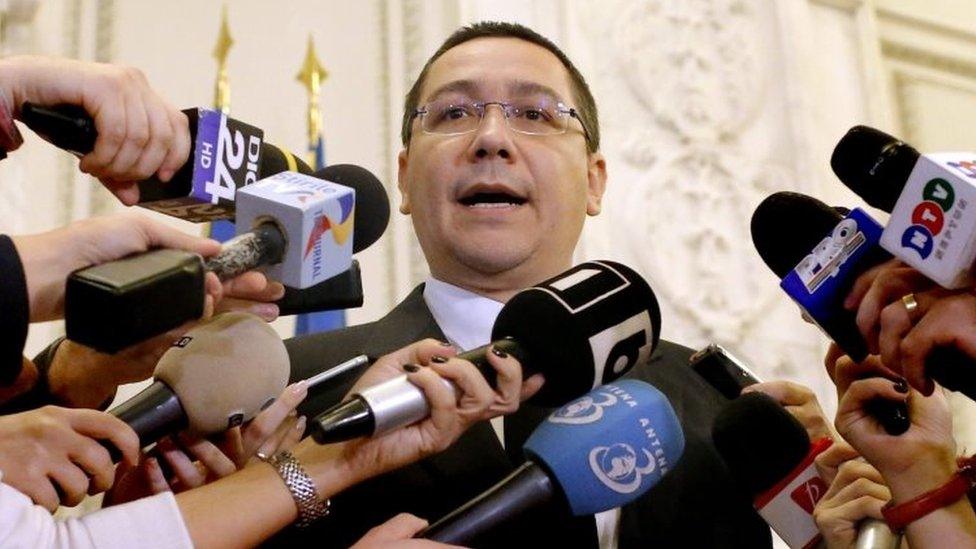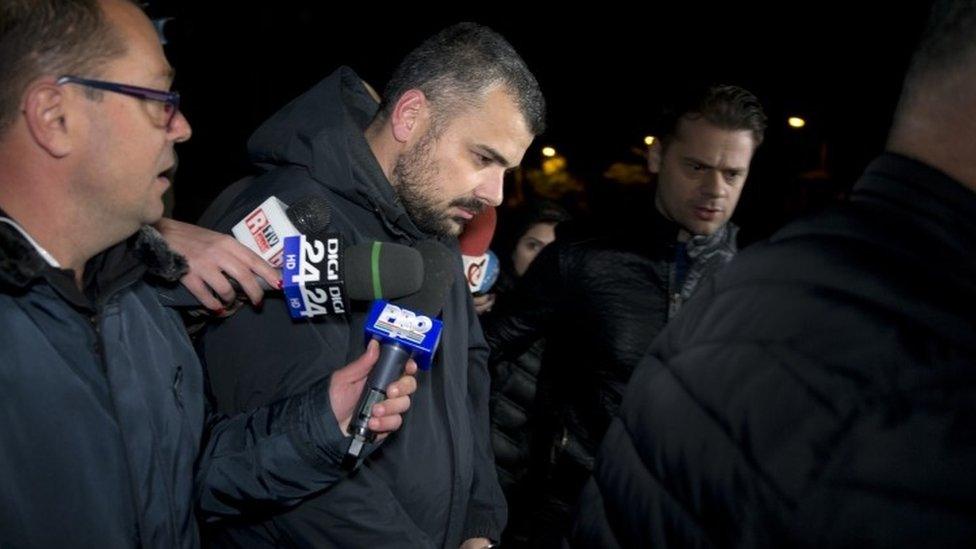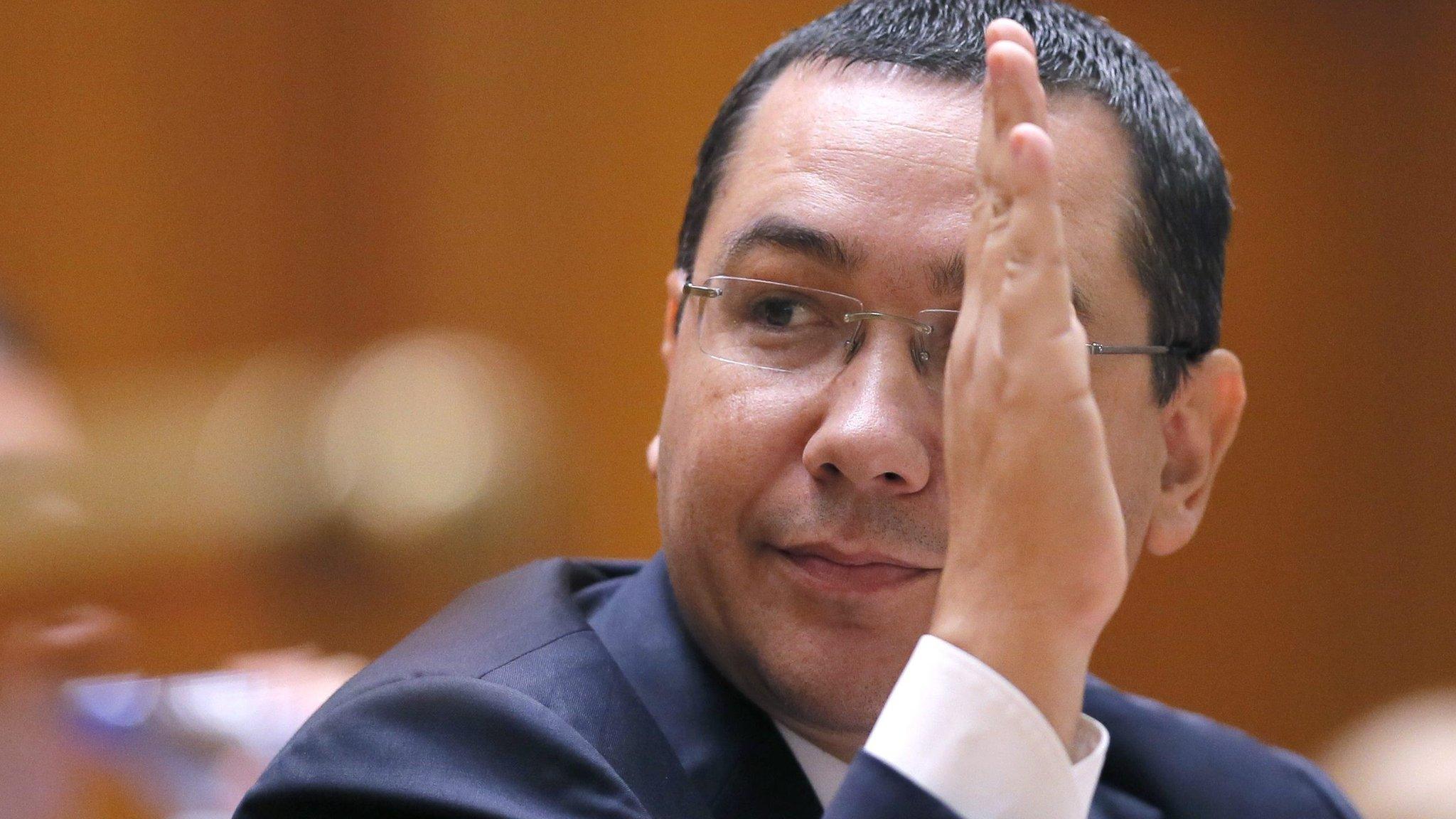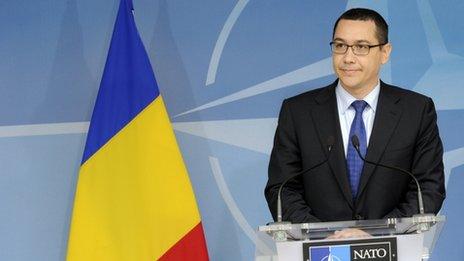Profile: Victor Ponta
- Published

Victor Ponta: "I can carry any political battles, but I can't fight with the people"
Victor Ponta - the Romanian prime minister who has resigned after mass streets protests over a deadly nightclub fire - is one of the country's most controversial politicians.
Even before his surprise move on Wednesday, the 43-year-old was Romania's only sitting prime minister to face trial over allegations of fraud, tax evasion and money laundering.
He has repeatedly denied the charges, accusing prosecutors of being "totally unprofessional".
Mr Ponta - himself a former prosecutor - has also faced accusations of disregard for democratic standards and the rule of law, after he spearheaded a successful campaign to oust the heads of both houses of parliament and even tried - but failed - to impeach the then President Traian Basescu in 2012.
The move was widely criticised by senior politicians in Romania and across the European Union.
"Confrontation has been his trademark during his tenure in office," London-based Romanian journalist Petru Clej told the BBC.
He added that Mr Ponta "has become something of a liability to the European Union", as some politicians simply felt uncomfortable dealing with him.
However, it seems that the street protests in the capital Bucharest finally forced the experienced political bruiser to step aside.
"I can carry any political battles, but I can't fight with the people," Mr Ponta told reporters after his resignation.
Plagiarism row
Mr Ponta became Romania's third prime minister in less than six months when his left-leaning Social Liberal Union (USL) alliance took charge in May 2012 after toppling its predecessor in a confidence vote.
But later that year he was hit by yet another scandal.
A report in the science magazine Nature suggested more than half of Mr Ponta's doctoral thesis work in 2003 was made up of copied text.
The prime minister categorically rejected the plagiarism claim as politically motivated.
In December 2012, Mr Ponta's Social Democratic Party (PSD) won a landslide victory at parliamentary elections, capitalising on mounting public discontent over austerity policies.
However, several months later Mr Ponta was at the centre of another row when his deputy Liviu Dragnea was charged - along with dozens of other people - with trying to rig the 2012 referendum that failed to oust President Basescu.
The Social Liberal Union partnership fell apart in 2014 when the National Liberal Party left because of a row over a cabinet reshuffle, prompting Mr Ponta to form a new coalition - this time with a party representing ethnic Hungarians.
In 2014, Mr Ponta stood for the post of president and was favourite to win.
He won the first round, but then unexpectedly lost in the run-off to Klaus Iohannis - a centre-right provincial mayor and anti-corruption campaigner.
Analysts say that that election was decided by the votes of Romania's large diaspora, who favoured Mr Iohannis, a member of Romania's ethnic German community.
Earlier this year, President Iohannis repeatedly called on Mr Ponta to resign over the ongoing corruption trial.
- Published2 November 2015

- Published29 September 2015

- Published19 June 2012
